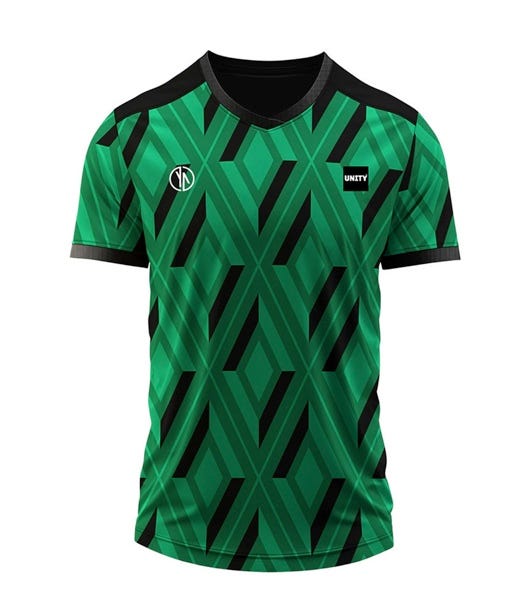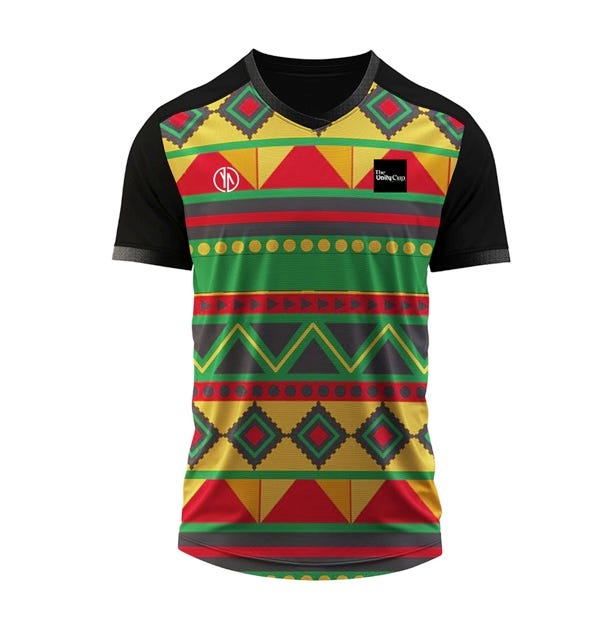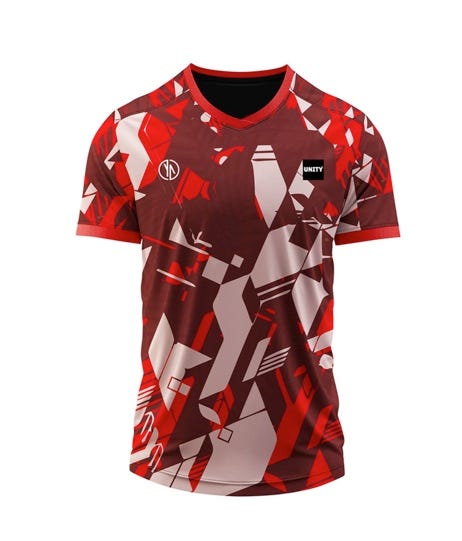Fashion, Football and Diaspora
Last week, the Unity Cup returned to London after a 21-year hiatus. The football itself wasn’t nearly at the standard of the UEFA Champions League Final (happening on he same day in Munich), but it was a celebration of competition, culture, and the power of the diaspora.
The Unity Cup, hosted at Brentford’s Gtech Community Stadium, brought together four teams to represent countries with deep diasporic roots in the UK: Ghana, Nigeria, Jamaica, and Trinidad & Tobago.
Football as a Diaspora Stage
Football is more than just sport, it reaches into culture through music, fashion and so much more. In the UK, football is also one of the loudest expressions of diasporic identity. For communities with roots in West Africa or the Caribbean, the game has always been a way to connect heritage with home, passion with pride.
For example, the match-up between Ghana and Nigeria wasn’t only about football. The “Jollof Rice Derby”, was about food, bragging rights, and a cultural rivalry that’s decades deep.
Influencers and culture lovers alike took to the stands to be part of the crowds. It was a mini Notting Hill Carnival with studs and shin guards.
Let’s talk kit sponsors—for a tournament so steeped in culture, we expected more from the fashion world
Puma backed the Black Stars of Ghana
Nike stood behind Nigeria’s Super Eagles
Adidas sponsored Jamaica
Capelli Sport supported Trinidad and Tobago
Oyaactive were the official merch sponsors of the competition.




But where were the major collabs and cultural activations?
If we could do it again (and the tournament had nearly enough money or recognition for this to be worth it) here’s who we would sub in.
Daily Paper – Amsterdam-based and Afro-diasporic to the core. Their past collabs with Ajax and Puma prove they know how to blend streetwear and sport. Plus they have a strong growing presence in the UK so 👀
Free the Youth – Ghanaian-owned, youth-driven, and fresh off a major collab with Off-White. We’re not saying this collab would have saved The Jollof Derby, but it might have activated some more community spirit, you know?
Labrum London – Okay to be fair, Labrum did just release their Africa Day Collection and recently redesigned the Arsenal kit. So they get a pass…
Each of these brands have built identities rooted in community, storytelling, and cultural pride— which is exactly what the Unity Cup stands for.
Admittedly, this was fun football, not the world cup. Considering that was the first time the tournament had been held since 2004, it was only ever going to be grassroots.
Next time, the right partnerships could make this era-defining. Hopefully we won’t have to wait another 21 years to find out.


